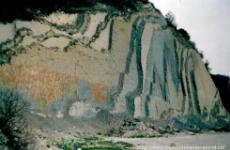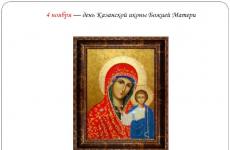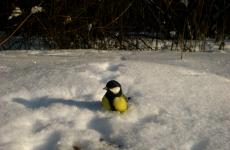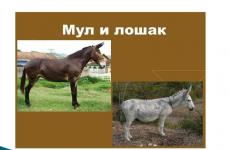Pleshcheev biography for children. Complete collection of poems
Alexey Nikolaevich Pleshcheev (1825 - 1893) - Russian poet, writer, translator, critic. Pleshcheev's works were included in the anthology of Russian poetry, prose, and children's literature and became the basis for about a hundred romances by Russian composers.
Childhood and youth
Alexey Pleshcheev came from a noble family, which by the time the future poet was born in 1825 was impoverished. Boy being only son parents, was born in Kostroma and spent his childhood in Nizhny Novgorod. Elementary education got it at home, knew three languages.
In 1843, Pleshcheev entered the Faculty of Oriental Languages at St. Petersburg University. In St. Petersburg, his social circle is developing: Dostoevsky, Goncharov, Saltykov-Shchedrin, the Maykov brothers. By 1845, Pleshcheev became acquainted with the circle of Petrashevites professing the ideas of socialism.

The poet's first collection of poems was published in 1846 and was imbued with revolutionary aspirations. The verse “Forward!” published in it. Without fear or doubt” the youth perceived it as “Russian Marseillaise”. Pleshcheev's poems of the early period are the first Russian response to the events of the French Revolution, some of them were banned by censorship until the beginning of the twentieth century.
Link
The Petrashevsky circle, of which Pleshcheev was an active participant, was closed by the police in the spring of 1849. Pleshcheev and other members of the circle were imprisoned in the Peter and Paul Fortress. The result of the investigation was a death sentence for 21 of the 23 prisoners, involving execution.
On December 22, a mock execution took place, at the last moment of which the imperial decree on pardon and exile of the convicted was read out. Pleshcheev was sent as a private to the Southern Urals, near Orenburg. Military service The poet's life lasted 7 years; during the first years he wrote practically nothing.
For the courage shown during the Turkestan campaigns and the siege of Ak-Mosque, Pleshcheev was promoted to rank and retired. In 1859 he returned to Moscow, and from 1872 he lived in St. Petersburg.
Creativity after exile
The poet's second collection of poems was published in 1858 with Heine's prefaced words, “I was unable to sing...”. Upon returning to Moscow, Pleshcheev actively collaborated with the Sovremennik magazine and published poems in various publications in Moscow. The turn to prose dates back to this time. The stories were created (“Inheritance”, “Father and Daughter”, “Pashintsev”, “Two Careers”, etc.).
In 1859-66. Pleshcheev joined the group of leaders of Moskovsky Vestnik, directing it towards liberalism. Many critics considered Pleshcheev’s publication of the works and autobiography of T. Shevchenko, whom the poet met in exile, to be a bold political act. Poetry was also politicized, for example, the poems “Prayer”, “ Honest people, the thorny road...", "To youth", "False teachers", etc.
In the 60s, Pleshcheev fell into a depressive state. His comrades leave, the magazines where he published are closed. The titles of the poems created during this period speak eloquently about the change in the poet’s inner state: “Without hopes and expectations,” “I walked quietly along a deserted street.”

In 1872, Pleshcheev returned to St. Petersburg and headed the journal Otechestvennye zapiski, and then Severny Vestnik. Returning to a circle of like-minded people contributed to a new creative impulse.
IN last years During his life, the poet wrote a lot for children: the collections “Snowdrop”, “Grandfather’s Songs”.
Pleshcheev's pen includes translations of a number of poems and prose foreign authors. The poet's works in dramaturgy are significant. His plays “The Happy Couple”, “Every Cloud Has a Cloud”, “The Commander” are successfully staged in theaters.
Alexey Pleshcheev died on September 26, 1893 in Paris, while there on his way to Nice for treatment. Buried in Moscow.
Autumn has come
The flowers have dried up,
And they look sad
Bare bushes.
Withers and turns yellow
Grass in the meadows
It's just turning green
Winter in the fields.
A cloud covers the sky
The sun doesn't shine
The wind howls in the field,
The rain is drizzling..
The waters began to rustle
of the fast stream,
The birds have flown away
To warmer climes.
Alexey Nikolaevich Pleshcheev (1825-1893) - Russian writer, poet, translator; literary and theater critic.
Born on December 4, 1825 in Kostroma, in the family of an official who came from an old noble family. The poet's distant ancestor took part in the battle with the Tatars on the Kulikovo Field.
Alexey Pleshcheev spent his childhood in Nizhny Novgorod, studied in St. Petersburg, at the school of guards ensigns, then, leaving it, at the university, at the oriental faculty. In 1844 he published his first poems in Sovremennik, and in 1846 he published a separate collection of poems, which brought him wide fame.
Alexey Pleshcheev was part of Petrashevsky’s illegal circle, which preached socialist ideas. In particular, he delivered Belinsky’s letter to Gogol, banned by the authorities, to Petrashevsky. In April 1849, when the tsarist government crushed Petrashevsky's circle, the poet was arrested and imprisoned in the Peter and Paul Fortress.
On December 22, 1849, Alexei Pleshcheev, along with other Petrashevites, was brought to Semenovskaya Square for execution, which was canceled only at the last minute. The poet was sentenced to four years of hard labor, which was replaced “in consideration of his youth” by exile as a private in the Orenburg Line Battalion. He received permission to enter “both capitals” and returned to literary activity after ten years as a soldier. In 1872, at the invitation of Nekrasov, he moved from Moscow to St. Petersburg, taking the position of secretary of the journal Otechestvennye Zapiski and heading its poetry department. After the closure of Otechestvennye Zapiski, Pleshcheev headed the same department at Severny Vestnik.
Alexey Pleshcheev died in 1893 in Paris on his way to a French resort. He was buried in Moscow at the Novodevichy Convent in front of a large crowd of young people. On the day of his funeral, Moscow newspapers received an order prohibiting any “word of praise to the late poet.”
Pleshcheev Alexey Nikolaevich short biography Russian writer, poet, translator, literary and theater critic is presented in this article.
Brief biography of Pleshcheev
A writer was born December 4, 1825 in the city of Kostroma in the family of an official. His father died when Alexei was 2 years old. The poet's mother raised her son alone. Pleshcheev spent his childhood in Nizhny Novgorod.
In 1839, the family moved to the city of St. Petersburg, where Pleshcheev entered the school of cavalry cadets and guards ensigns. After 2 years he left the school, and in 1843 he entered St. Petersburg University at the Faculty of History and Philology. During this period, Alexey Pleshcheev became interested in socialist ideas, political activity and reforms in the country.
In 1845 he also left the university. By this period, Alexey Nikolaevich was actively involved in literary activities - he wrote poetry and acted as a prose writer. In 1849, Pleshcheev was arrested through connections with the Petrashevites. He was accused of distributing prohibited literature and sentenced to death by firing squad. But it was decided to replace the sentence with 4 years of hard labor and deprivation of wealth. But, having softened the sentence even more, he was redirected to the Orenburg region to serve as border guard. There, Alexey Nikolaevich received the rank of non-commissioned officer, then ensign, and soon he transferred to the civilian service.
In 1857, the writer tied the knot. Two years later, Pleshcheev received permission to move to Moscow, where he began to fully engage in what he loved - creativity. In the city of Pleshcheev he began collaborating with the Sovremennik magazine, published in magazines and newspapers. Engaged in writing critical articles, giving feedback on the political and social life of Russia.
In 1863, they tried to accuse the writer of anti-government activities. It was withdrawn due to lack of any evidence.
In 1864, the poet’s wife dies and later Pleshcheev marries a second time. To provide for his family, he re-enters the service, while at the same time trying to earn a living by publishing his works.
In 1872, Pleshcheev moved to St. Petersburg and began working in the journal Otechestvennye zapiski. He constantly struggles with need, works extremely hard to provide decent level life for your family.
And fate is behind long years The poet's labors rewarded him - he receives an inheritance at the end of his life, which allowed him to live comfortably while being creative.
Pleshcheev Alexey Nikolaevich (1825 - 1893), poet.
Born on November 22 (December 4, n.s.) in Kostroma into a noble family that belonged to an ancient family. My childhood years were spent in Nizhny Novgorod, where my father served and died early. Under the guidance of his mother, he received a good education at home.
In 1839, together with his mother, he moved to St. Petersburg, studied at the School of Guards Ensigns and Cavalry Junkers, then at the university, from which he left in 1845. student years His interest in literature and theater, as well as history and political economy, was determined. At the same time he became close to F. Dostoevsky, N. Speshnev and Petrashevsky, whose socialist ideas he shared.
In 1844, Pleshcheev’s first poems (“Dream,” “Wanderer,” “At the Call of Friends”) appeared in Sovremennik, thanks to which he began to be perceived as a poet-fighter.
In 1846, the first collection of poems was published, which contained the extremely popular poem “Forward! Without fear and doubt...”, which was extremely popular among the Petrashevites.
In 1849, together with other Petrashevites, he was sentenced to death penalty, replaced by soldierhood, deprivation of “all rights of state” and sending to a “separate Orenburg corps as a private.”
In 1853 he took part in the assault on the Ak-Mechet fortress, was promoted to non-commissioned officer for bravery, and in May 1856 received the rank of ensign and was able to transfer to civilian service.
He got married in 1857, and in 1859, after much trouble, he obtained permission to live in Moscow, although under “the strictest supervision,” “without time.”
He actively collaborates with the Sovremennik magazine, becomes an employee and shareholder of the Moskovsky Vestnik newspaper, is published in Moskovskie Vedomosti, etc. He joins the Nekrasov school, writes poems about people's life ("A Boring Picture", "Native", "Beggars" ), about the life of the urban lower classes - “On the Street”. Impressed by the plight of Chernyshevsky, who had been in Siberian exile for five years, the poem “I feel sorry for those whose strength is dying” (1868) was written.
Pleshcheev's work was highly appreciated by progressive critics (M. Mikhailov, M. Saltykov-Shchedrin, etc.).
In 1870 - 80, Pleshcheev was engaged in translations a lot: he translated T. Shevchenko, G. Heine, J. Byron, T. Moore, Sh. PetEfi and other poets.
As a prose writer, he appeared back in 1847 with stories in the spirit of the natural school. Later his “Tales and Stories” (1860) were published. At the end of his life he wrote the monographs “The Life and Correspondence of Proudhon” (1873), “The Life of Dickens” (1891), articles on Shakespeare, Stendal, etc.
Interest in the theater especially intensified in the 1860s, when Pleshcheev became friends with A. Ostrovsky and began writing plays himself (“What Often Happens,” “Fellow Travelers,” 1864).
In 1870 - 80 he was secretary of the editorial office of Otechestvennye zapiski, after their closure - one of the editors of Severny Vestnik.
In 1890, Pleshcheev received a huge inheritance. This allowed him to get rid of many years of struggle for existence. With this money, he provided assistance to many writers and contributed a significant amount to the literary fund, establishing funds named after Belinsky and Chernyshevsky to encourage talented writers, supported the family of the sick G. Uspensky, Nadson and others, and financed the magazine “Russian Wealth”.
Pleshcheev was " godfather"such beginning writers as V. Garshin, A. Chekhov, A. Apukhtin, S. Nadson.
The musicality of Pleshcheev's poems attracted the attention of many composers: songs and romances based on his texts were written by Tchaikovsky, Mussorgsky, Varlamov, Cui, Grechaninov, Gliere, Ippolitov-Ivanov.
Russian writer, poet, translator; literary and theater critic.
He comes from an old noble family, which included several writers (including the famous writer S.I. Pleshcheev at the end of the 18th century). Pleshcheev's father was a provincial forester in Nizhny Novgorod from 1826. From 1839, Alexey lived with his mother in St. Petersburg, studied in 1840–1842 at the School of Guards Ensigns and Cavalry Junkers, and in 1843 entered the Faculty of History and Philosophy of St. Petersburg University in the category of Oriental Languages.
Since 1844, Pleshcheev published poems (mainly in the magazines Sovremennik and Otechestvennye zapiski, as well as in the Library for Reading and Literary Newspaper), varying the romantic-elegiac motifs of loneliness and sadness. Since the mid-1840s, in Pleshcheev’s poetry, dissatisfaction with life and complaints about one’s own powerlessness have been pushed aside by the energy of social protest and calls for struggle (“At the Call of Friends,” 1945; nicknamed the “Russian Marseillaise,” “Forward! Without fear and doubt...” and “We are brothers according to feelings,” both 1846), which for a long time became a kind of anthem of revolutionary youth.
In April 1849, Pleshcheev was arrested in Moscow and taken to the Peter and Paul Fortress in St. Petersburg; On December 22 of the same year, together with other Petrashevites, he waited at the Semenovsky parade ground for execution, which at the last moment was replaced by 4 years of hard labor. Since 1852 in Orenburg; for distinction in the assault on the Kokand fortress Ak-Mechet, he was promoted to non-commissioned officer; from 1856 officer. During these years, Alexey Nikolaevich became close to other exiles - T.G. Shevchenko, Polish rebels, as well as with one of the creators of the literary mask of Kozma Prutkov A.M. Zhemchuzhnikov and revolutionary poet M.L. Mikhailov. Pleshcheev's poems from the period of exile, moving away from romantic clichés, are marked by sincerity ( love lyrics, dedicated to his future wife: “When your meek, clear gaze...”, “My days are only clear to you...”, both 1857), sometimes with notes of fatigue and doubt (“Thoughts”, “In the steppe”, “Prayer” ). In 1857, Pleshcheev was returned to the title of hereditary nobleman.
In May 1858, the poet came to St. Petersburg, where he met N.A. Nekrasov, N.G. Chernyshevsky and N.A. Dobrolyubov. In August 1859 he settled in Moscow. He publishes a lot (including in Russky Vestnik, Vremya and Sovremennik). In 1860, Pleshcheev became a shareholder and member of the editorial board of Moskovsky Vestnik, attracting the most prominent literary figures to cooperation. In the 1860s, Nekrasov, Turgenev, Tolstoy, Pisemsky, Rubinstein, Tchaikovsky, and actors from the Maly Theater attended literary and musical evenings at his house.
In the 1870–1880s, Pleshcheev was mainly engaged in poetic translations from German, French, English and Slavic languages. He also translated (often for the first time in Russia) fiction and scientific prose. The melody of Pleshcheev’s original and translated poetry attracted the attention of many composers; more than 100 of his poems were set to music. As a prose writer, Pleshcheev acted in line with the natural school, turning mainly to provincial life, denouncing bribe-takers, serf owners and the corrupting power of money. Close to the theatrical environment, Pleshcheev wrote 13 original plays, mostly lyrical and satirical comedies from provincial landowner life, small in volume, entertaining in plot, shown in the leading theaters of the country (“Service”, “Every cloud has a cloud”, both 1860 ; “The Happy Couple”, “The Commander”, both 1862; “What Often Happens”, “Brothers”, both 1864, etc.).
In the 1880s, Pleshcheev supported young writers - V.M. Garshina, A.P. Chekhova, A.N. Apukhtina, I.Z. Surikova, S.Ya. Nadson; talked with D.S. Merezhkovsky, Z.N. Gippius and others.
In 1890, Pleshcheev came to the family estate near the village. Chernozerye of the Mokshansky district of the Penza province, now the Mokshansky district for accepting the inheritance, lived in Mokshan. In 1891 he donated money to help the starving people of the province. Until 1917, there was a Pleshchev scholarship at the Chernozersky School. Alexey Nikolaevich died in Paris on September 26, 1893; buried in Moscow.





